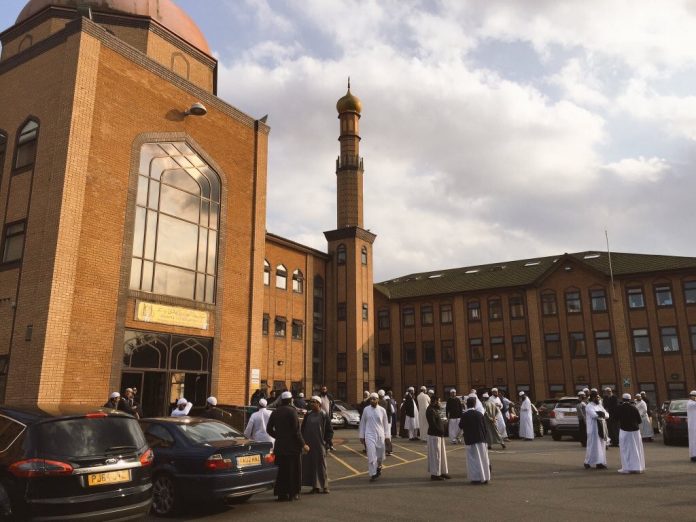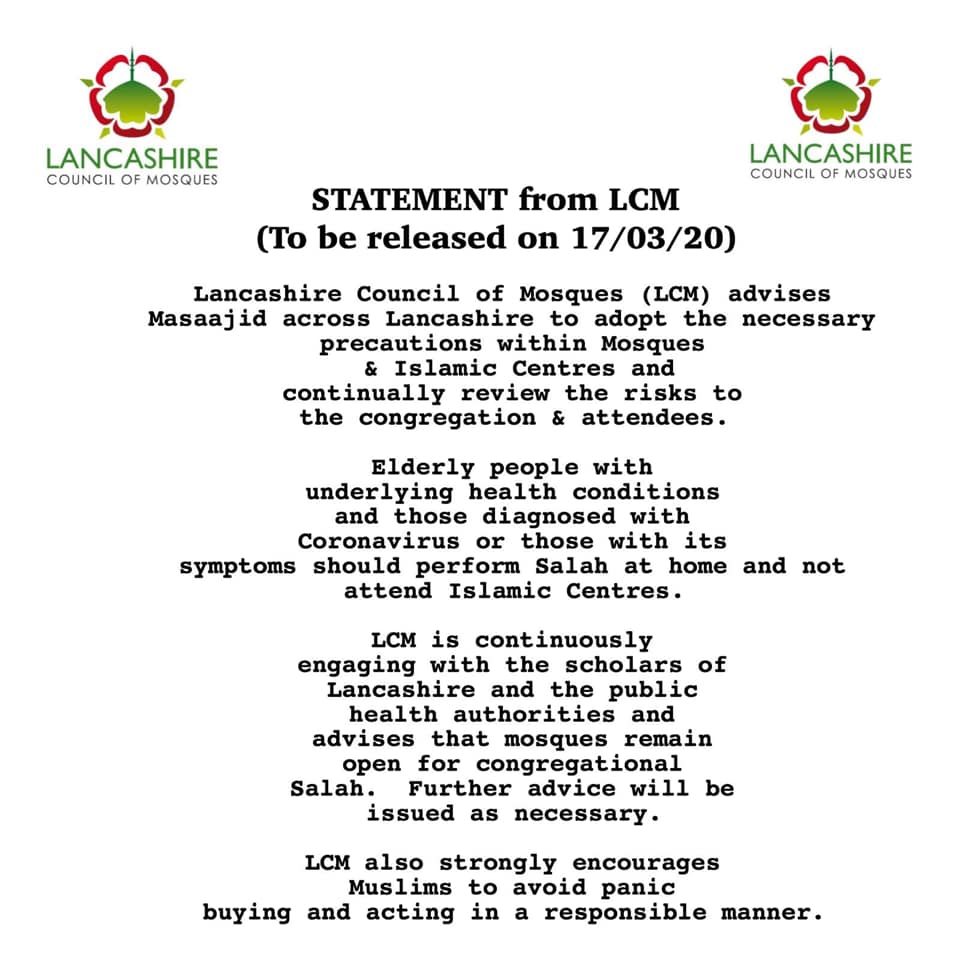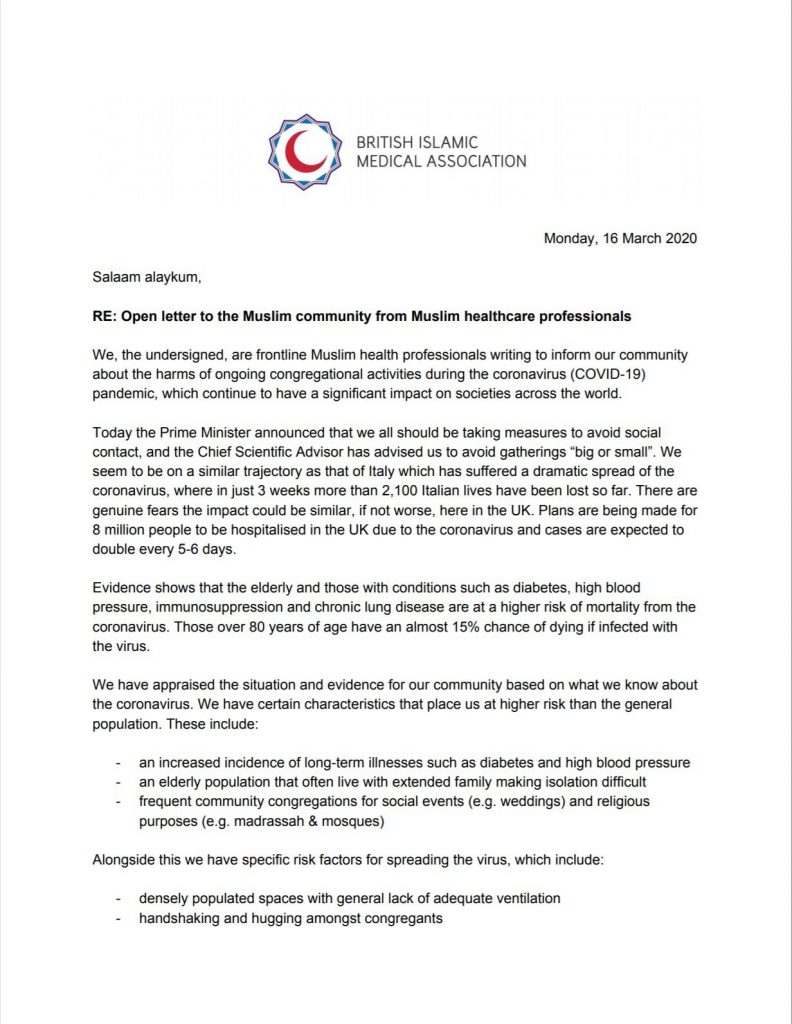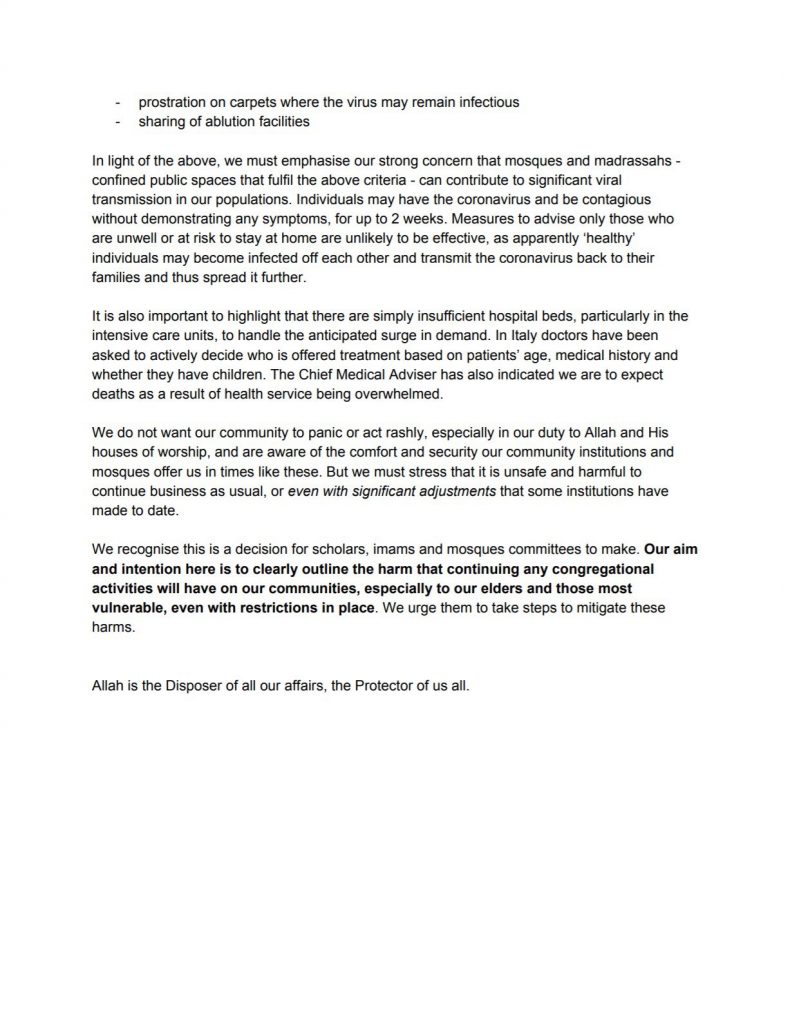Scholars from some of the most influential Islamic seminaries in the UK have said that mosques should remain open for congregational prayers until the government issues orders to close them because of the coronavirus outbreak.
The fatwa by Deobandi scholars Yusuf Shabbir and Mufti Shabbir Ahmad of Darul Uloom Blackburn and Mufti Muhammad Tahir of Darul Uloom Bury comes as many, if not most, mosques across the country remain open.
This is despite advice from the Muslim Council of Britain and the British Board of Scholars and Imams for mosques to close to prevent the spread of the infection.
So far the government has only issued advice against mass gatherings but has not prohibited them.
The Bury and Blackburn scholars said: “It is recognised that there are mixed views in relation to Masjids remaining open. These decisions are not taken lightly, and everyone recognises the severity of the pandemic. Those who wish to attend the Masjids should not be belittled or prevented from doing so.
“The advice to keep Masjids open for congregational Ṣalāh takes into account the following:
- The importance of Masjid’s and congregational Ṣalāh, as reflected from congregational Ṣalāh during war (Ṣalāt al-Khawf) and other ḥadīths.
- The protection of faith supersedes the protection of one’s self.
- The Prophet’s ﷺ practice of rushing to the Masjid during calamities.
- A significant portion of the Ummah abandoning Ṣalāh particularly congregational Ṣalāh and other sins causing such epidemics. The Masjid and congregational Ṣalāh is part of the solution and not the problem.
- Masjids remaining open when epidemics occurred during the era of the companions and thereafter.
- Ḥadīths advising precautions during epidemics do not mention closing Masjids or stopping congregational Ṣalāh.
- The differentiation between an individual decision not to attend a Masjid and a collective decision to close a Masjid for congregational Ṣalāh.
- The continued running of schools notwithstanding the huge risks and the duration of time (6-8 hours) spent therein.
- The limited 5-10 minutes duration of congregational Ṣalāh.
- The ground reality of Muslims continuing to attend weddings, functions, shopping centres, and other public and private places and spending much more time than the time spent in congregational Ṣalāh.
The scholars concluded: “Therefore, Masjids should remain open for congregational Ṣalāh, and should adopt the necessary precautions in a proportionate manner to manage the risks. The benefits of keeping Masjids open significantly outweigh the risks at this stage. This will be reviewed continuously as the situation evolves and in light of the government’s guidance.”
Subscribe to our newsletter and stay updated on the latest news and updates from around the Muslim world!
Lancashire Council of Mosques also said mosques should remain open:
However, British mosques have not formed a united front when it comes to closures. A few leading mosques around the country have taken the decision to close – Ghamkolvia and Green Lane Mosque in Birmingham, Cambridge Central Mosque, Al-Rahma Mosque in Liverpool, Manchester Central Mosque and Didsbury Mosque, but precious few others.
Major mosques in London, such as East London Mosque, remain open with restrictions.
But Muslim medical professionals are still pressing for closures on the grounds that mosques and madrassas are environments that could spread infections and that the Muslim community is especially vulnerable.
The British Islamic Medical Association issued the following open letter to the Muslim community on Monday.

























